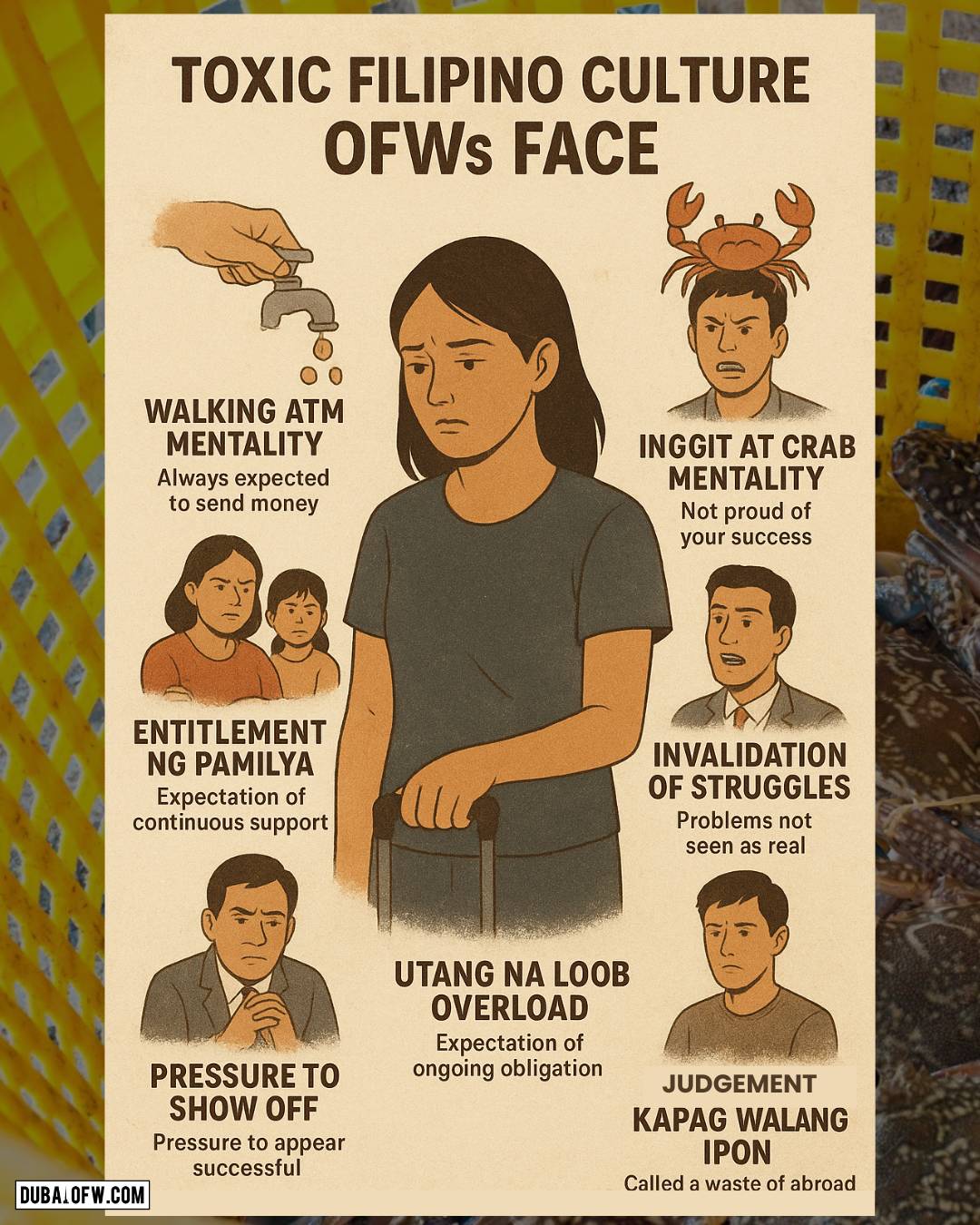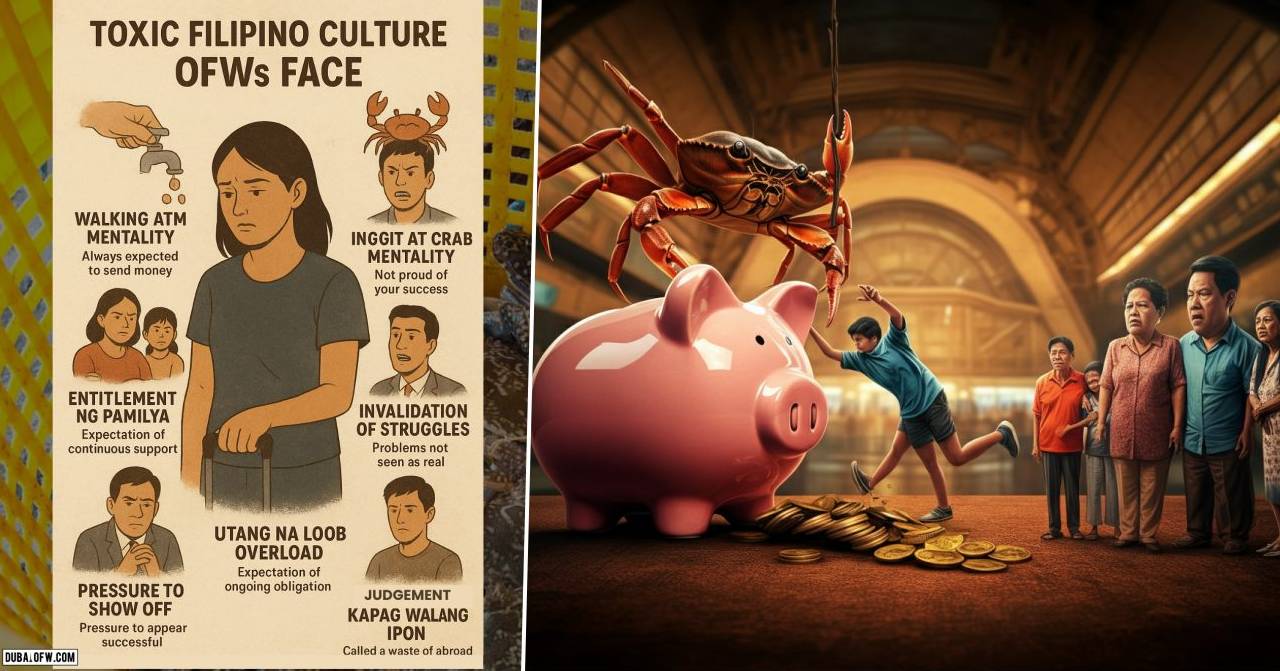Working abroad is often seen as a golden ticket to a better life, not just for the Overseas Filipino Worker (OFW) but for their entire family. While this journey is filled with opportunities, it also comes with a heavy, unspoken burden. Many OFWs face toxic cultural expectations that add immense pressure to their already challenging lives.
We recently shared a meme on our Facebook page which is blowing up online and getting many Pinoys to share. Let’s talk about these shared struggles that many of us know all too well.
Terms like “pasalubong,” “utang na loob,” and “inggit” hold deep cultural meaning in the Filipino context and are woven into the OFW experience. Understanding the weight and impact of these words helps explain why many OFWs feel caught between their desire to help and the burden of cultural expectations.
Contents
1. The ‘Walking ATM’ Mentality
The moment you start working abroad, some relatives and even friends may start seeing you not as a person, but as a walking ATM. The perception is that because you earn in a foreign currency, your funds are limitless. You are suddenly expected to cover everyone’s financial needs—from monthly bills and tuition fees to emergency hospitalizations and loan payments. The requests often pile up, pushing you beyond your financial capacity and leaving you with little for yourself.
2. Crab Mentality and Inggit
Instead of celebrating your success, you might encounter envy from the very people you expect support from. You’ll hear whispers like, “They’re just lucky,” or “Their job must be easy.” These comments completely disregard the sacrifices, loneliness, and hard work that are part of life abroad. It’s a painful reality when your achievements are downplayed by this “crab mentality,” which seeks to pull you down rather than lift you up.
3. A Sense of Entitlement
For many families, receiving remittances becomes an expectation rather than a gift. A slight delay in sending money can lead to guilt-tripping and complaints. It can feel like your role has shifted from a loved one helping out to an employee with a non-negotiable obligation. This entitlement erodes the heartfelt intention behind your support, turning a gesture of love into a stressful duty.
4. Your Struggles are Invalidated
Life as an OFW is not just physically demanding; it’s also emotionally and mentally draining. Homesickness, exhaustion, and workplace stress are daily battles. Yet, when you try to voice these struggles, you might be met with responses like, “You’re better off there, we have it harder here.” This invalidation of your feelings can be incredibly isolating, making you feel like you have no safe space to be vulnerable.
5. The Pressure to Appear Successful
Coming home for a vacation often feels like a performance. There’s an unspoken pressure to bring pasalubong for everyone, treat the whole clan to expensive meals, and generally show off that you’ve “made it.” This need to project an image of success can be financially draining, especially when you’re already on a tight budget.
6. ‘Utang na Loob’ Overload
In our culture, “utang na loob,” or a debt of gratitude, is a powerful concept. However, it can be weaponized against OFWs. After helping someone, you may find that they feel entitled to your continuous support, as if you are forever indebted to them. This creates a never-ending cycle of expectations that can be impossible to escape.
7. Judgment for Lack of Savings
Finally, if you decide to return to the Philippines for good without significant savings or a new business, you face judgment. People might say your time abroad was “wasted,” failing to understand that the high cost of living and the constant support you provided left little room for personal savings.
Recognizing these toxic traits is the first step toward setting healthy boundaries. Your hard work and sacrifice are valid, and your well-being matters just as much as that of the loved ones you support.
Did we miss any toxic traits that you’ve experienced as an OFW? Share your thoughts and personal stories in the comments—your insights could help others who are facing the same challenges.
Note: This article was first written on DubaiOFW.com site. Content copyright notice.

